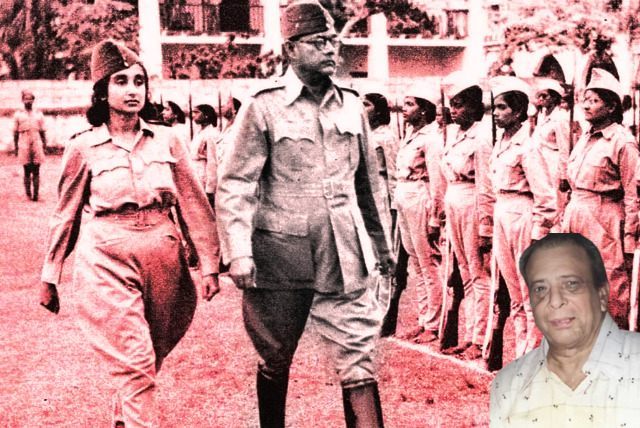
Bangladesh – Reeling Under Multiple Crises
Russia’s unrelenting military assault on Ukraine that began on February 24, 2022 has already done a significant collateral economic damage to Bangladesh and other East Asian countries. The setback is to an extent that Bangladesh, a least developed country which aspires to acquire middle income status by 2031 had to scamper to International Monetary Fund (IMF) for a bailout package of $4.5 billion. Earlier to the damage being wreaked by the Ukrainian war that shows no signs of ending anytime soon, the Bangladesh economy took a beating from the Covid-19 pandemic. But as the IMF acknowledges, Bangladesh made a “robust economic recovery from the pandemic” by clocking a 3.4 per cent GDP (gross domestic product) growth in 2020 followed by a lot more impressive 6.9 per cent in the following year. The problem of inequitable distribution of incremental wealth generation among different sections of society remains.
In a recent country report, the World Bank has, however, cut the Bangladesh GDP forecast for 2022-23 by 0.6 percentage points to 6.1 per cent as the country battles “high inflation and rolling electricity blackouts.” Led by economic distress, Bangladesh is the third of India’s neighbour country to have secured accommodation from the IMF with all the stiff accompanied conditions. Nevertheless as IMF emergency funds help avert a potential debt servicing/payment default, they create the ground for more aid from other multilateral institutions and friendly nations.
Incidentally, Pakistan’s extended loan facility from IMF stands at about $7 billion. The highly politically disturbed Pakistan, according to expert estimates, will need at least $41 billion for debt repayments and to fund imports. Most worryingly, the country’s foreign exchange reserves are down to a level that could pay for about one month’s imports. Political unrest that recently took the form of an attempted assassination of dethroned prime minister Imran Khan, mostly covert army interferences in government work, the law unto itself ISI, state harbouring Islamist forces within the country and outside have all combined to exacerbate Pakistan’s economic problems. Till such time, the army stays put in the barracks and a democratically elected government gets a free hand to rule, there will be no redemption for Pakistan.
Sri Lanka will remain an example of how runaway inflation of food, medicine and fuel prices making them unaffordable for the masses could bring hundreds of thousands of protesters out on the road and lead them to lay siege on the President’s official residence forcing Gotabaya Rajapaksa to resign and flee to Singapore. The island country, which defaulted on its $51 billion external debts, ran out of foreign exchange to fund essential imports. That left Sri Lanka with no alternative but to agree to conditional $2.9 billion bailout from IMF.
India too a victim of inflation well beyond the Reserve Bank of India’s tolerable band and a high rate of unemployment is expectedly concerned about developments in its immediate neighbourhood. Concern remains about China spreading its influence in south Asia. Currency depreciation vis a vis US dollar and high energy prices have dealt a major blow to all these countries.
ALSO READ: Delhi-Dhaka – Shared Interests, Mutual Progress
Historically, India has an affinity towards Awami League and its leader Sheikh Hasina. This is based as much on thrice incumbent Hasina government pursuing a secular policy in the face of opposition from Jamaat-i-Islami and not so covert attempts at Islamisation/radicalisation of Bangladeshis by Pakistani agents as the ties forged since the liberation war leading to creation of a new country out of east Pakistan. Even then, New Delhi has kept communication channels with the principal Opposition party Bangladesh Nationalist Party (BNP) of which the founder was former President Ziaur Rahman (1977-81) live, if not for anything than to loosen its dalliance with Islamist forces. In any case, BNP has seen that its pursuit of a highly Islamist policy and communal rant are not yielding dividends at the hustings.
For example, in the 2018 general elections to Jatiya Sangsad (House of the Nation), BNP got only seven seats and 13 per cent of the votes. Besides the voters not warming up to what it promised in the election manifesto, the party had to contend with two handicaps during 2014 elections. First, the late Ziaur son Tarique, the acting chairman of BNP is cooling his heels in exile in London following the life sentence award given to him on charges of attempt to kill Sheikh Hasina in 2004.
Second, chairperson Khaleda Zia (the late President’s wife) spent nearly four years in jail between 2017 and 2020 on several corruption charges, including siphoning of foreign donation money for an orphanage. She got released from jail well before serving the full sentence, but with the condition that she would stay put in Dhaka. Moreover, she has serious health problem creating a leadership vacuum in BNP. Whatever that is, BNP has principally latched on to growing popular discontent about rising prices of all essential items to launch a campaign against Hasina government, which is becoming increasingly strident.
Despite official highhandedness in dealing with protests, BNP, to the surprise of the government has been able to hold massive rallies in districts and the capital city Dhaka. In the meantime, revelation of a big ticket corruption involving S Alam group, popularly believed to be Awami League’s key financier, has helped in fanning people’s anger against the government. Name almost any sector, including banking, S Alam has its finger in the pie. Such is the public resentment against the group taking multi-billion dollar loans from a number of banks, in some of which it has substantial equity ownership. Worse is the group has used the borrowed funds to fund purchase of hotels and real estate in Singapore. The irregularities in borrowings and subsequent investments offshore reek of a kind of corruption that Hasina is left with no alternative but to order an inquiry.
A question mark remains on the fairness of the inquiry since the involvement of some Awami League politicians close to the prime minister is not ruled out. But the bank loan scandal already an embarrassment for the administration will compromise the Awami League and its leader ahead of 2023-end elections in case the inquiry reveals some murkiness in loan sanctioning. Some BNP politicians claim that in the days ahead more cases of corruption involving businessman-politician nexus will come to light to provide them with the handle to berate the government of the day. Besides piling pressure on Hasina administration for its attempts to silence the Opposition using every means, including arrests and attempts to sabotage lawful protests, BSP for political optics made its seven MPs to resign their parliamentary seats. Naturally, Awami League is wondering aloud why did it take BNP four long years to realise that democracy is now at risk? As it happens in such awkward situations, the ruling party sees a foreign hand working.
Bangladesh foreign minister Dr AK Abdul Momen has complained, not to anyone’s surprise that “some powerful countries have the historical habit to suppress third world countries like ours. Have they not in the past destroyed stable countries such as Iraq and Libya in the past? Let me warn my countrymen if we are not able to resist foreign engineered unrest then all of us will suffer.”
In the meantime, in its attempt to build pressure on Hasina government, BNP has announced a 27-point programme for structural reform of the state and governance. This, among other reforms, includes reintroduction of holding elections under a neutral government, limiting a prime minister to hold office for two consecutive terms (this in order to debar Hasina to become prime minister once again), election commission to be manned by “independent and impartial persons,” and formation of an election reforms commission. The elections are to be held by December 2023 and it is too early to make any forecast about poll outcome at this stage.
Developments in South Asia in recent months are highly disturbing, to the extent of Pakistan Sri Lanka and Bangladesh going down on their knees seeking financial accommodation from IMF. Besides economic stress, we are also noticing rise in communalism among sections of Bangladeshi population and extremist violence in Pakistan. All this is highly disturbing for India. China fishing in disturbed waters cannot be ruled out.
Problems in Pakistan, Bangladesh, Myanmar, Nepal and to a certain extent in Sri Lanka are all instigated by China to keep India under pressure.
Besides that corruption in Bangladesh is the killer with hardly an existence of a middle class and the majority is poor. This creates political turmoil and even in the future corruption will be the major reason for all political turmoils which will always backed by China.
Excellent analysis by Kunal Bose and it could not have been any better. Interferance in the internal affairs of Bangladesh has been and continued to be there since emergence of Bangladesh in 1971 as a sovereign country.
One may recall the ugly role US and China nexus during the Liberation war of Bangladesh. US even despatched her 7th Fleet to the Bay of Bengal but thanks to outstanding leadership of Mrs Gandhi and the Indo-Soviet Freindship Treaty, the US game plan was over. Its history now.
Since then US and China and of course Pakistan have been trying through all possible means covert and overt to establish a Govt of their liking in Bangladesh. Some time they were syccessful. That game is still on. Only difference is that China has seemingly been nutralised by the astute move by the Sk. Hasina govt.
Under present scenario brilliantly outlined in the article of Kunal Bose, Indian policy makers should seriously address the legitimate concern of the government and the people of Bangladesh in her own interest.
Senior Indian journalist Rabindranath Sinha says: A common economic factor running through South Asian countries is increasing indebtedness, of which India is also a victim. In the past, it was seen that disturbed political conditions, resulting from economic distress, also affected India. Overall, the outlook appears uncertain. The only consolation for India is that parliamentary democracy has taken roots and the country can tackle crises, much better than its three neighbours. Prospects for Bangladesh, however, appear uncertain. That is my understanding after reading your well written piece.



